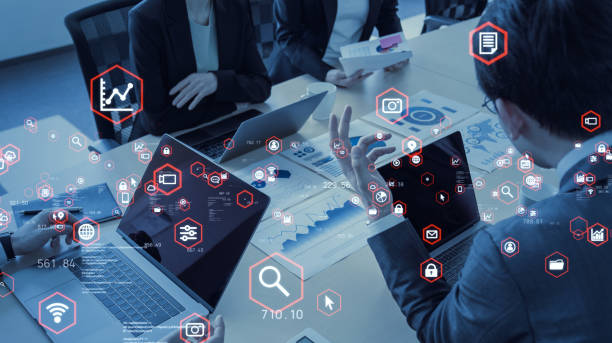What is an ERP?
Enterprise Resource Planning (ERP) refers to business Best ERP System in Saudi Arabia that optimizes an organization’s processes by providing a system of integrated, centralized applications that help manage and automate a wide range of business operations, including accounting, human resources management, sales, and inventory.
That’s how we describe Enterprise Resource Planning now, but it wasn’t always like that. In the past, “ERP” was a term that focused more on manufacturing software. In other words, the ERP systems we see today are the evolution of what was originally MRP (MRP ii).
ERP has come a long way since then and for all intents and purposes should be considered global business management software. ERP systems are distinguished by their ability to link multiple business processes and foster the flow of data between them. This reduces duplicate data and improves the overall data quality of an organization’s IS system. With a centralized database, through ERP, organizations benefit.
Today, there are several ERP systems available in the market. They are undoubtedly an integral part of the management of organizations, companies, and companies around the world, of all sizes and in all sectors. Enterprise resource planning software today has more features than ever before and is becoming more sophisticated and capable of meeting the demands of today’s organizations.
Different Types 0f ERP Software
Although not generally marketed as such, enterprise resource planning software can be divided into four different categories. Box ERPs, large-scale ERPs, intermediate and flexible ERPs, and industry-specific ERPs. This categorization helps in understanding the current market landscape of ERP systems.
ERP in a box
An ERP in a box is a name used to describe enterprise resource planning systems that are very easy to use and install but cannot be easily configured or customized. They are ready to install and use immediately for core business functions. These ERPs don’t have the ability to add add-ons and are very ridged boxed ERPs, but can be very profitable for a small business.
Large-scale complex ERP
Large-scale complex ERP systems can best be understood as a framework. A company provides a framework from which specific software will be created. Because developers are starting from scratch, these ERPs require countless hours of development and consulting to deliver a highly specialized end product.
Intermediate Flexible ERP
These ERP systems fall somewhere between boxed ERPs and full-scale ERP systems. They can certainly be used out of the box, but also offer great flexibility and can be customized to meet your exact needs. Intermediate ERPs are very economical and ideal for small and medium-sized businesses.
Who can use an ERP system?
Anyone can use an ERP system. From small businesses to large enterprises, companies of all sizes and in all industries use ERP systems. Some of the industries Captive has worked with include printing, manufacturing, insurance, and cannabis.
ERP Systems Techniques
Modern ERP systems work by bringing all of your typical business processes together. The singular interface ties everything together to provide a seamless user experience as users move between business processes. Like most software, ERP has several layers that work together. One of the main technical layers of an ERP system is the database.
The database is where all of a company’s data on customers, accounting, inventory, etc., will be stored. The next layer is your program. ERP will appear on various platforms such as smartphones, desktops, and the web.
Read More:









































